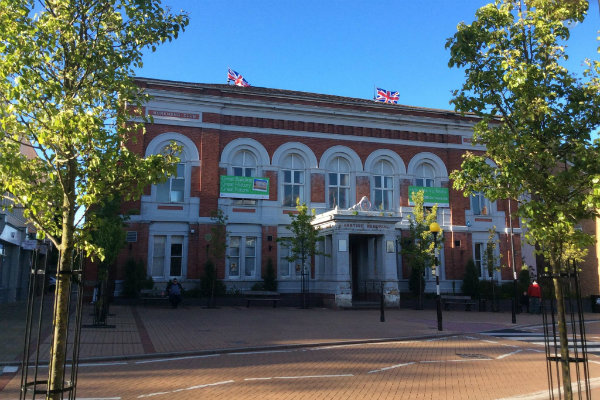What do you think of when you hear the word ‘heritage’?
Maybe an old building? A landmark? Natural landscapes? A museum? These are all important, but the reality is that heritage is also about much more.
The RSA is working on how heritage can improve lives in local places. As part of this work, a group of RSA staff met to share examples of their own heritage. These examples illustrate the real range of heritage – objects, places, ideas, food, industries, accents, and many more.
They also show that there is no fixed heritage for any place or group of people. When we think about identities based on place, it’s important to be recognise groups who were overlooked in the past and how they have contributed to the history of a community.
They are also very personal. This reflects what we’ve found in our research, that there is often a very strong connection between place, belonging, and heritage. Here are some example of what heritage means to us:
Phoebe
For me, the harbourside in Bristol holds a sense of personal and familial history, being near where I was born and grew up, but also raises important questions about how we engage critically with our history.
Bristol has a proud and strong place identity, but how can we engender a sense of pride in where we’re from, while also remaining honest about the shameful parts of that place’s history?
Evidence of efforts to reckon with Bristol’s role in the transatlantic slave trade can be found throughout the city – in museum exhibits, inclusion in local schools’ history syllabus, the bridge named after Pero Jones, a slave who lived and died in the city – but what does this mean when these stand alongside schools, roads and historic venues named after the slave merchants who profited from these atrocities, and passed those profits on to the whole infrastructure of the city? How can we commemorate and learn from what has gone before without exalting or excusing it?
Becca
Several years ago I bought a handwritten recipe book at my hometown’s car boot sale in Herefordshire. It had belonged to a woman called Jean who had collected the recipes over decades.
Tucked inside was a Denbighshire WI newsletter from the 1960s, including a recipe for Hereford Tea Loaf. Herefordshire does not have recipes it is famous for, so it felt like I had uncovered a small piece of local food history.
Baking the cake makes me feel connected to Herefordshire –with its views of the Black Mountains and a different pace of life, which feels very far from my day to day in London.
Our domestic food heritage, historically centred around women’s labour and expertise, is often overlooked.
The newsletter represents how the WI has enabled women to share information and skills, and organise for change - often in ways much more radical than they are credited for. For me, the recipe and Jean’s cookbook feel like a small but powerfully symbolic link to the area that we are both from, and the histories of the women that have lived there.
Zayn
Highgate Cemetery is a heritage site I’ve back to again and again – I’ve placed a pencil in the pot next to Douglas Adam’s tombstone, looked up at the stone beard of Marx’s bust.
It gives new context to a familiar part of London: intimacy with past residents and their histories.
Cemeteries are good at illuminating these personal histories, but they also point to the societal past and present. They are good places to survey the unevenness of society and to contemplate whose history is inscribed on stone, and whose passes un-commemorated into the earth.
Hila
I think heritage should reflect the way migration of different communities has helped to shape an area. The movement of people within and between countries and regions has shaped the past and present of all places. Recognising and exploring what that means feels important, whether it is for a single street or a whole city.
Anyone and everyone should be able to feel a part of it, whether that be through free events, community initiatives or installations. This is not what the word heritage usually conjures up in people’s minds but maybe it could.
Ed
My favourite piece of 'heritage' is a blue plastic tip-up seat: Block 105, Row H, Seat 101, the Etihad Stadium.
From there many memories have been made - Seanie Wright skidding on his knees towards us, Yaya patrolling the centre-circle, we saw the arc of the ball as Vinnie hit top-bins and, of course, Aguerrroooooooo - the most memorable moment of Premier League history.
But it's as much about family as football: three generations sitting side by side as we did at Villa Park throughout my childhood and at Leyton Orient the generation before that.
And it's about Manchester: a city remade after the bomb, whole neighbourhoods transformed, new industries replacing old, a new spring in our collective footsteps. Blue and white scarves aloft: this city is ours.
Adam
My hometown of Stamford is situated in that awkward part of the country where it appears nothing is there. It is in south Lincolnshire, but borders Cambridgeshire, Rutland and Northamptonshire.
I’ve never thought of having a local accent until I came across a Twitter account of a local Stamfordian pretending to be one of the town’s most famous former residents, Daniel Lambert.
The account parodies local businesses and uses phonetic spellings that made me realise that I did in fact have an accent. I find the account oddly reassuring and feel it celebrates our local heritage and community in a very personal way.
When we think of strong local identities people tend to think of Yorkshire, Cornwall, East London. But this Twitter account, however small, makes me appreciate that Stamford and the wider Lincolnshire area has just as much history as anywhere else.
Joseph
My example of heritage was my grandfather’s watch. It was given to him for 25 years of service with British Rail on the Liverpool docks. It’s inscribed with the award and his name.
A family memento may seem an obvious example of heritage in itself. But it reminds me of a few more.
The award reflects the heritage of local industry. The port that made Liverpool a truly global city, influenced by the whole world. The honouring of an extended period of service shows a sense of pride in work, firm, and country.
And for me the name on the watch – Joseph – reminds me that my personal heritage is to be named after my Grandad and to keep his memory alive.
For me, these examples have two key themes running through them (that we have also found when talking to people across the country):
- heritage is truly expansive, so much more than just buildings.
- and there is no fixed heritage or single interpretation for any place or people.
Why does this matter? When heritage is seen in a narrow way, then it’s easy to see it as only belonging to a few places. Larger, better known, more affluent places.
We see that smaller places, or places which do not conform to a more traditional idea of what heritage is, can still be rich in heritage - whether that is tied to their industrial pasts, natural heritage landscapes, or local people, culture and traditions.
These are often places that have seen less investment in recent years, often mis-represented as ‘left behind’. For these communities, the rich heritage they do have can be a valuable (and often overlooked) asset, a source of pride, and catalyst for action.
Heritage, identity and belonging are fundamental to our sense of well-being and even our economic security. How they are valued and supported, wherever we live, is crucial to how we feel about our communities and wider society. How we value heritage is a critical part of any new social contract.
This is what the RSA’s work on Heritage is hoping to take forward. In the meantime, we would love to hear examples of your personal heritage similar to the ones we’ve shared above. Comment below or get in touch with the RSA on social media.
If you are an RSA Fellow and want to be kept up to date with our Heritage work, find out more about the RSA Fellow-led Heritage Network here.
Related articles
-
Changing how we see heritage can help us build back better
Becca Antink
How the heritage sector is making a difference in local communities.
-
A Community finds its voice: One Heritage Ambassador's Story
jc
June Campbell FRSA and Heritage Ambassador reflects on what is required to cherish and develop a sense of place where you live with a reflection on the Anstice Memorial Hall in Madeley.
-
Living assets and heritage
Keith Harrison-Broninski
In this guest blog, Keith Harrison-Broninski FRSA, lead of the RSA Catalyst project Town Digital Hub, looks at how the RSA Heritage Index relates to the emerging concept of a Living Asset Map, and how heritage is all about people.




Join the discussion
Comments
Please login to post a comment or reply
Don't have an account? Click here to register.
Thanks for this Becca. I think that I for one am guilty of thinking of heritage too narrowly. I believe that there were recordings done of ancient West Country folk songs that were fading from memory back in the 1970s. This article made me think of them and whether we could or should prioritise what is forgotten and what is treasured as heritage in a post-Covid world.